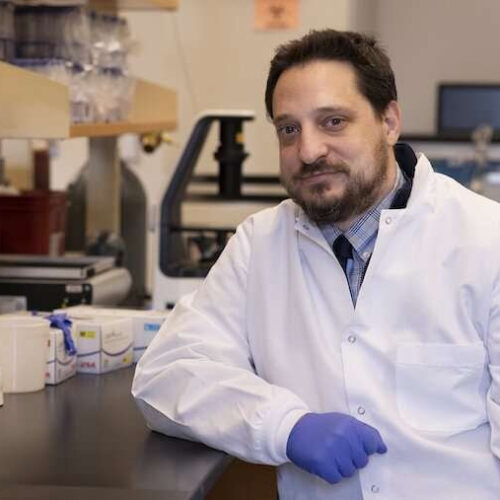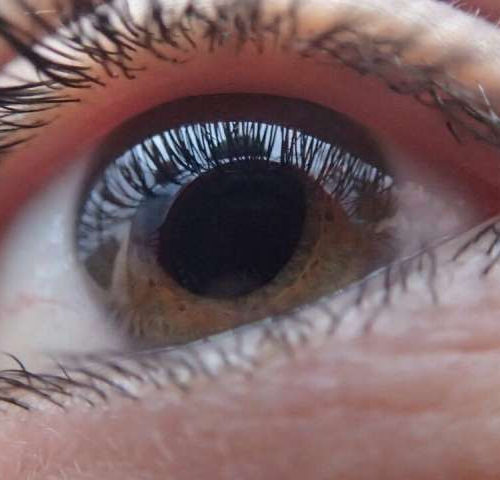by University of Virginia Bradley D. Gelfand, Ph.D., and collaborators have found early evidence that the drug fluoxetine may be effective against atrophic (or “dry”) age-related macular degeneration, a condition that affects nearly 200 million people worldwide. The drug has shown promise in the scientists’ lab tests and animal models, and the researchers bolstered by their...
Tag: <span>Blindness</span>
AI-supported test can predict eye disease that leads to blindness
by Maxine Myers, Imperial College London Credit: CC0 Public Domain In a clinical trial of 113 patients led by researchers at Imperial College London and UCL, retinal imaging technology called Detection of Apoptosis in Retinal Cells (DARC) was able to identify areas of the eye that were showing signs of geographic atrophy (GA) – a common condition that...
Researchers discover stem cells in the optic nerve that enable preservation of vision
by Deborah Kotz, University of Maryland School of Medicine Researchers at the University of Maryland School of Medicine (UMSOM) have for the first time identified stem cells in the region of the optic nerve, which transmits signals from the eye to the brain. The finding, published this week in the journal Proceedings of the National...
Researchers uncover genetic cause behind glaucoma
by Queen Mary, University of London Acute angle closure glaucoma of the right eye (intraocular pressure was 42 in the right eye). Credit: James Heilman, MD/Wikipedia New research has identified a genetic mutation linked to a type of glaucoma, known as primary angle-closure glaucoma (PACG), which could open up new avenues for the early detection...
Protein closely linked to commonest cause of blindness
An international team of scientists has identified a protein which is strongly linked to the commonest cause of blindness in developed countries when its levels are raised in the blood. The discovery is a major step forward in the understanding of age-related macular degeneration, which affects 1.5 million people in the UK alone. The study,...
Research team delivers breakthrough for leading cause of blindness
by Queen Mary, University of London Researchers have identified a new protein linked to age-related macular degeneration (AMD) that could offer new hope for the diagnosis and treatment of the disease, which affects over 1.5 million people in the UK alone. The research team, made up of scientists from Queen Mary University of London, the...
Scientists develop test that will help prevent glaucoma-related blindness
by Flinders University Australian researchers have identified 107 genes that increase a person’s risk of developing the eye disease glaucoma, and developed a genetic test to detect those at risk of going blind from it. The research, led by QIMR Berghofer Medical Research Institute and Flinders University, has been published today in the journal Nature...
Researchers find cells linked to leading cause of blindness in elderly
by Bill Hathaway, Yale University Age-related macular degeneration is one of the leading causes of blindness in the elderly, affecting more than 2 million people in the United States and leading to progressive loss of central vision. Genome wide studies have identified almost three dozen genes that play a role in the disease, but exactly...
Brain implant restores visual perception to the blind
by Elaine Schmidt, University of California, Los Angeles Seven years ago, Jason Esterhuizen was in a horrific car crash that destroyed his eyes, plunging him into total darkness. Today, he’s regained visual perception and more independence, thanks to an experimental device implanted in his brain by researchers at UCLA Health. “Now I can do things that I couldn’t do before,”...
A cure for blindness: Father, 35, who suddenly lost his sight aged nine is among six patients to have their vision restored by pioneering treatment that beams images directly into the brain
Five men and one woman have regained vision after years of ‘living in the dark’ They had electrode chips planted in the visual cortex at the back of their skulls These picked up images from a tiny video camera mounted in a pair of glasses One of the participants, Benjamin James Spencer, who went blind aged nine, described his joy at seeing his wife and three daughters for the...





